Thankfully Razer didn't put RGB lighting on these smart glasses.
Since Google Glass launched and then quietly went into hiding, the concept of "smart glasses" has always seemed a bit off-putting to me. Of course, these days, plenty of smart glasses aren't actually AR glasses and offer built-in audio and work by connecting to your phone or computer. They're smart with an asterisk.
When the Razer Anzu smart glasses were announced in March, I was actually pretty excited. I had been putting off getting new glasses for some time, but I knew these cool-looking frames would finally get me to renew my prescription. Since a lot of us are working from home now, the Razer Anzu are appropriately targeted towards anyone who spends a lot of time in front of a computer monitor (me), does a lot of video conferencing (also me), and maybe wants to look good while doing it (me me me). But there were some glaring issues that I was worried about before I got my hands on them, which I'll get to later in this review.
Razer Anzu
Bottom line: The Razer Anzu are fine smart glasses with decent audio and a simple design that's perfect for a work-from-home lifestyle. Unfortunately, there are a few shortcomings that are hard to ignore, particularly with audio and controls.
The Good
- They look good
- Open-ear audio is decent for music
- Lenses swap out easily
The Bad
- Open-ear audio doesn't work as well in public
- Charging is awkward
- Touch controls take some getting used to
- Limited app
$200 at Besy Buy $200 at Razer
Razer Anzu: Price and availability
The Razer Anzu retail for $200 at either Best Buy or on the Razer website. These are hardly the most expensive frames out there, and with these, you get the added benefit of features like built-in speakers, omnidirectional mics, and touch controls. Additionally, Razer has partnered with Lensabl to provide buyers with 15% off on custom prescription lenses when purchasing the Razer Anzu.
Razer Anzu: Why these are cool
Off the bat, the Razer Anzu look great. Razer makes some of the best gaming laptops on the market, and part of that is the clean, minimal design that's found on devices like the Razer Blade Pro 17 (2020). That same simplistic design language is found here as well. What surprised me about the frames is that the temples, while fairly wide, weren't too thick. Both temples house the speakers, touch controls, batteries, and mics, and while the glasses may appear thick in hand, they look pretty natural when worn. They don't look like an accessory from a gaming OEM and are mostly inconspicuous at first glance.
The Anzu come in two styles: circular or square in small or large sizes. I got the latter in both cases. What's nice is that when you purchase the Razer Anzu, they'll come with two pairs of lenses, clear ones with a blue light filter, meant for use inside while sitting in front of a monitor, and sunglass lenses that feature 99% UVA/UVB protection when out and about. Swapping the lenses out is much easier than I expected, which is nice when you find yourself dashing out of the house. They're quite comfortable to wear, and I had no problem with weight. It's also nice to know that they carry an IPX4 rating, particularly since I live in rainy Seattle.
The frames sound much better than I expected, even if they leak a lot of sound into your surroundings.
I'm no audiophile, but the audio coming from the speakers is pretty decent, at least when listening to music. The underside of the temples houses the down-firing speakers, so while it's not quite as immersive or deep as something you'll get from the best wireless earbuds like the Razer Hammerhead True Wireless Pro, the audio is much better than what I expected.
The Razer Anzu even have a gaming mode to reduce latency, although I never found myself needing it, even when watching videos. I appreciated that I could still have an in-person conversation with someone while music was playing. I wasn't scrambling to immediately press pause like I find myself often doing with the Jabra Elite 75t Active. Unfortunately, this was also a downside as well, one that I saw coming a mile away.
Razer Anzu: What could use some work
The Razer Anzu have pretty good audio when listening to music, but they seem to suffer when it comes to calls. Voice calls come in fine, and people on the other end say I sound decent, but I noticed that audio on video calls would cut in and out or constantly adjust. It can be quite jarring when the volume will suddenly rise and then lower again.
Little thought was given to how these would be used outside.
The open-ear speaker setup on the glasses also comes with a major downside — outside noise makes it difficult to hear when I'm listening to, well, anything. Just stepping out into the street, I immediately found myself turning the volume all the way up. That also means that privacy isn't really a thing because everyone else can hear what you're listening to, whether it's music or if you're in a call. I admit that I sort of expected this when I got them and really hoped that this wouldn't be the case, but if you're in a quiet area, anyone near you can listen in on your conversations. On the other hand, if it's noisy, no one can listen in — not even you.
The touch controls are located on the temple near the hinge, but they took some time to get used to. I would either miss the spot completely, or the glasses just wouldn't register my touches; it wasn't always clear. The controls themselves are pretty standard and include access to smart assistants. You can remap them with the fairly barebones Razer Anzu app, but even so, I found that the single tap to gesture required your finger to be left on the temple for half a second longer than I would like.
Battery life was decent, and in mixed-use can get me through much of a day. When unfolded, the glasses will automatically turn on and connect, then fall into standby mode when folded, which then can last up to two weeks. Unfortunately, that 5.5 hours that Razer quoted for continuous music playback would fall pretty fast if I were out and about since I have music on all the time and need the volume on maximum just to get a good listen. It would get to the point where I made sure to have my Jabra on hand just in case the Razer Anzu died on me.
Since the batteries are shoved into both temples, it makes for a fairly awkward charging situation. The braided magnetic cable attaches to the underside of both temples in a setup that looks a little strange, especially given how short of a cable Razer provides in the box (there is no charging adapter in the box). Before splitting off into the separate magnetic connectors, the cable measures just over a foot long. That made charging the Anzu very inconvenient anywhere other than my bedside table, and even then it was still awkward. Fortunately, charging only takes about an hour and a half, after which the rather bright indicator lights inside each temple will turn off. And while you can charge the Anzu while folded, I feel like Razer could have gone with a better solution like a dock or some kind of charger built into the included leather case.
Razer Anzu: Competition
If the Razer Anzu smart glasses don't float your boat, Bose offers a pair of similarly priced frames that offer many of the same features. And with Bose, you have the option to choose from four different styles, all of which can be outfitted with prescription lenses, at least in the U.S. Battery life might not be as good, since Bose claims up to 5.5 hours of use and the Razer Anzu tout more than 5.5 hours of continuous playback. Of course, battery life will depend on usage.
If you're engrossed within the Amazon ecosystem, then the Amazon Echo Frames (2nd Gen) might be your speed. They are a bit pricier at $250, and battery life will take a hit at just 4 hours, but you'll get instant access to Alexa and other AI assistants. The companion app also comes with a host of controls and features to fiddle around with, including smart volume control.
If you're looking for something super affordable, JLab introduced its JBuds Frames back at CES 2021, which can turn any pair of glasses into smart glasses thanks to the clip-on design. They may add a bulky look to your frames, but they tout over eight hours of battery life and will set you back only $50.
Razer Anzu: Should you buy it?
You should buy this if ...
- You're in the market for stylish glasses/sunglasses.
- If you're a casual online gamer.
- If you work from home and spend a lot of time on the computer.
You shouldn't buy this if...
- You plan to use these anywhere but your home.
- You're an audiophile that prefers the in-ear audio experience.
- You're a more serious online gamer.
If you're like me and spend a lot of time at home but not a lot of time gaming, these could be a good choice for you. As mentioned before, they're not the most expensive frames on the market, and you get the added benefits of the "smart" audio controls. That said, if you plan to spend a lot of time outside of the house or inside gaming, you'd be better off with a separate pair of glasses and headphones.
The Razer Anzu are fine for what they are; simple, smart glasses meant to supplement the work-from-home lifestyle that many of us have become accustomed to. Unfortunately, when you try to do anything outside of your home, that's when things start to fall apart. Additionally, some of the features still manage to stumble while being used at home, which means there's still some work to do. Despite the shortcomings, I still find myself really appreciating what Razer is trying to do and still enjoy rocking these bad boys wherever I go.
Razer Anzu
Bottom line: The Razer Anzu smart glasses look good, and they work well as long as you stay inside. Even then, you might run into some problems with audio and spotty connection, but it's nothing that can't be fixed with an update. Comparatively, the Anzu are priced fairly well, so they may be worth the price even with the shortcomings.


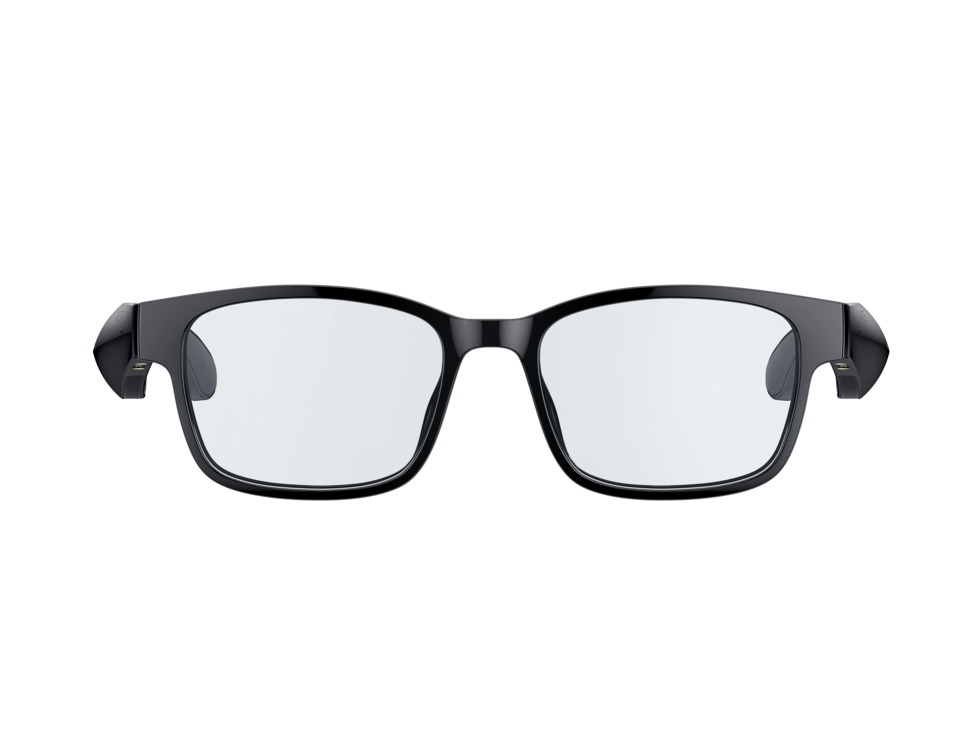

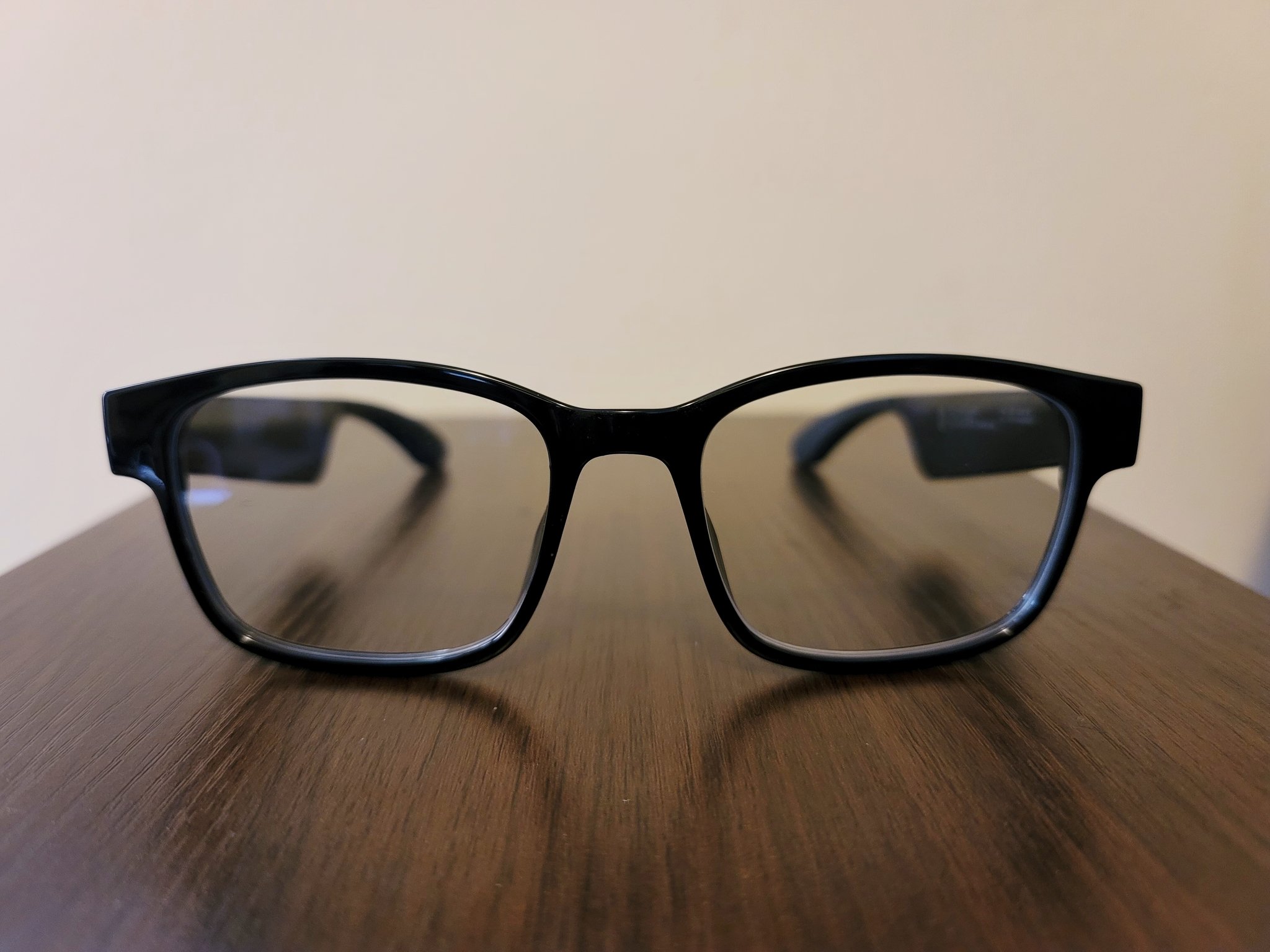


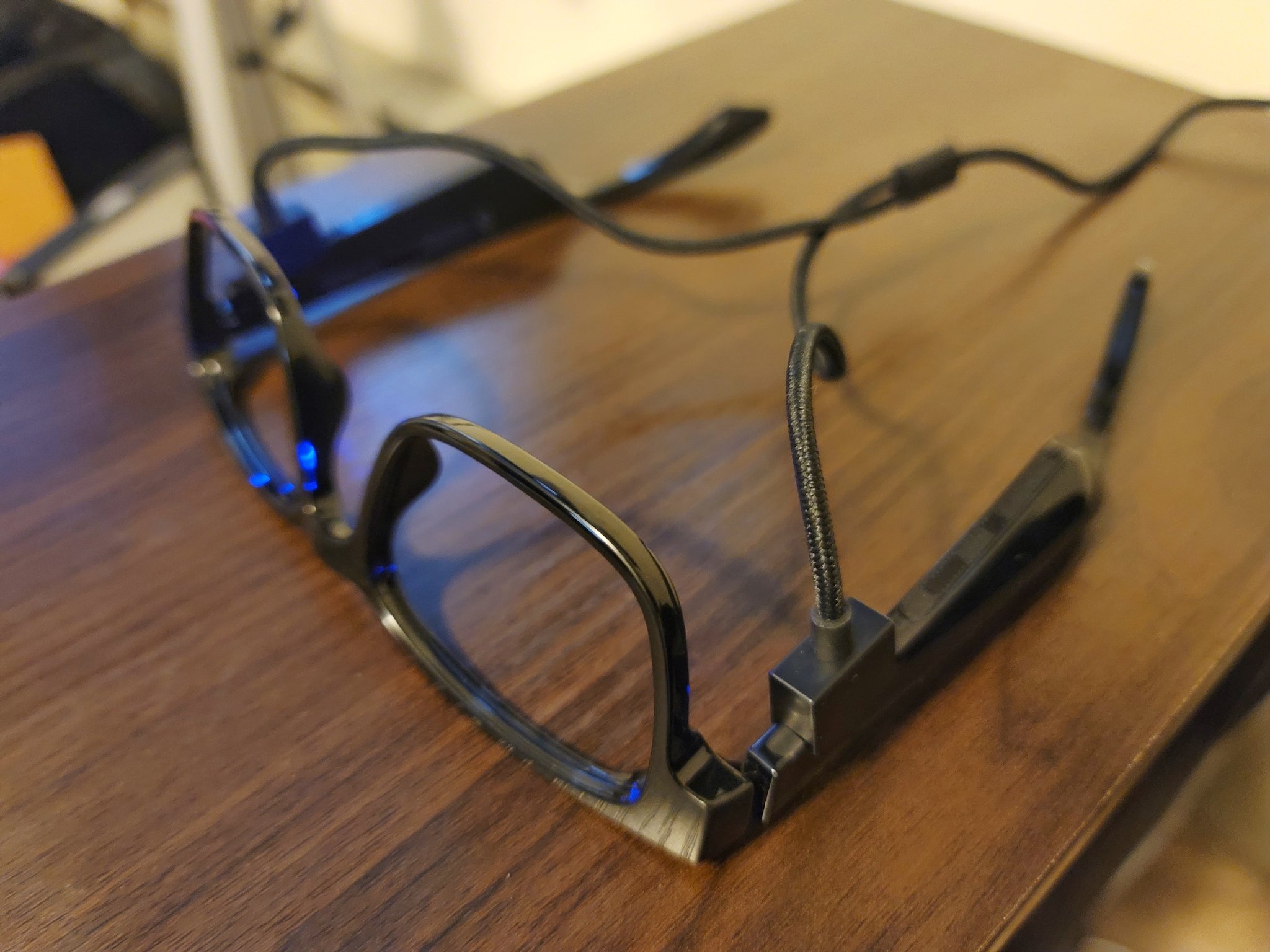

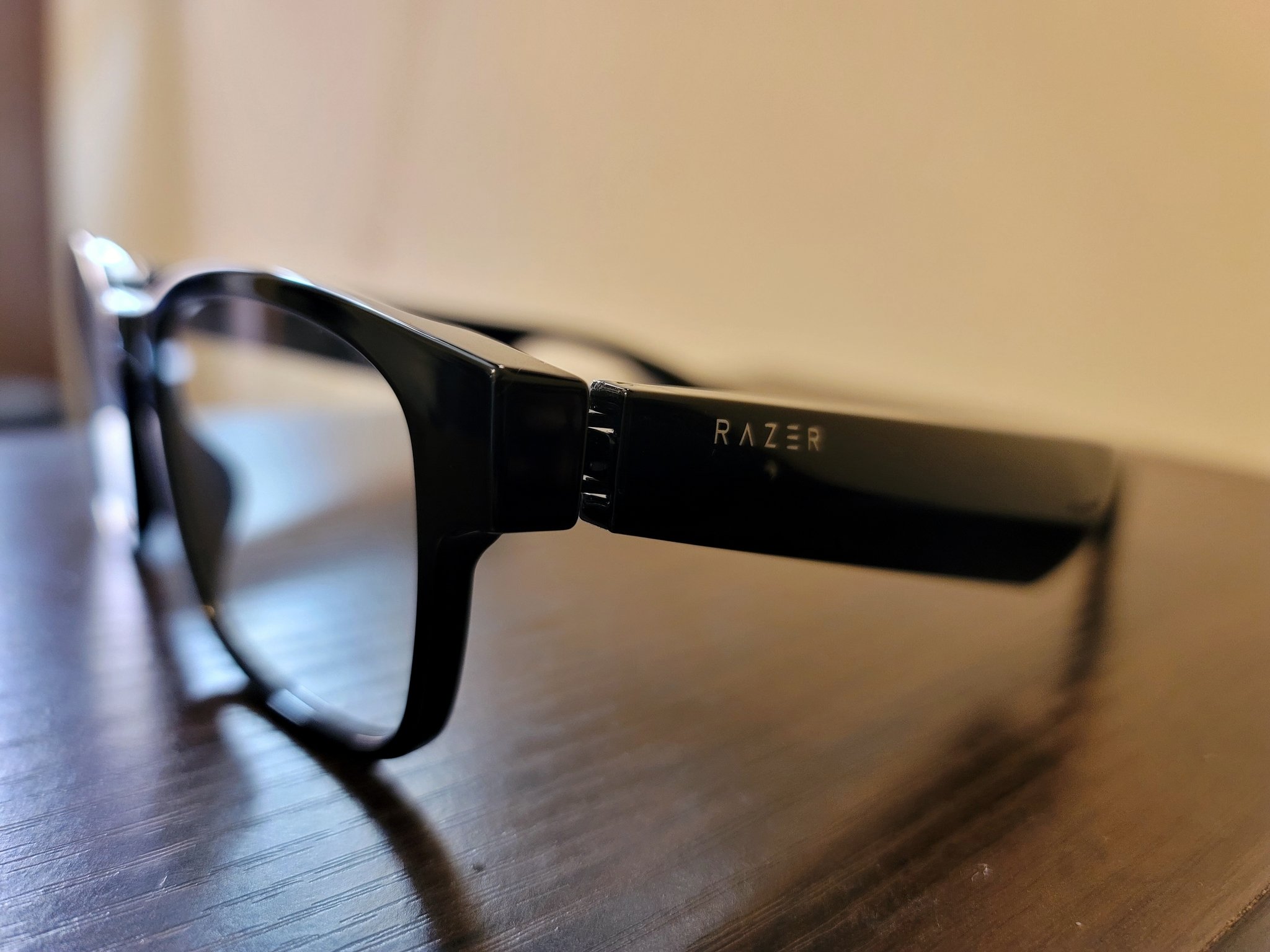
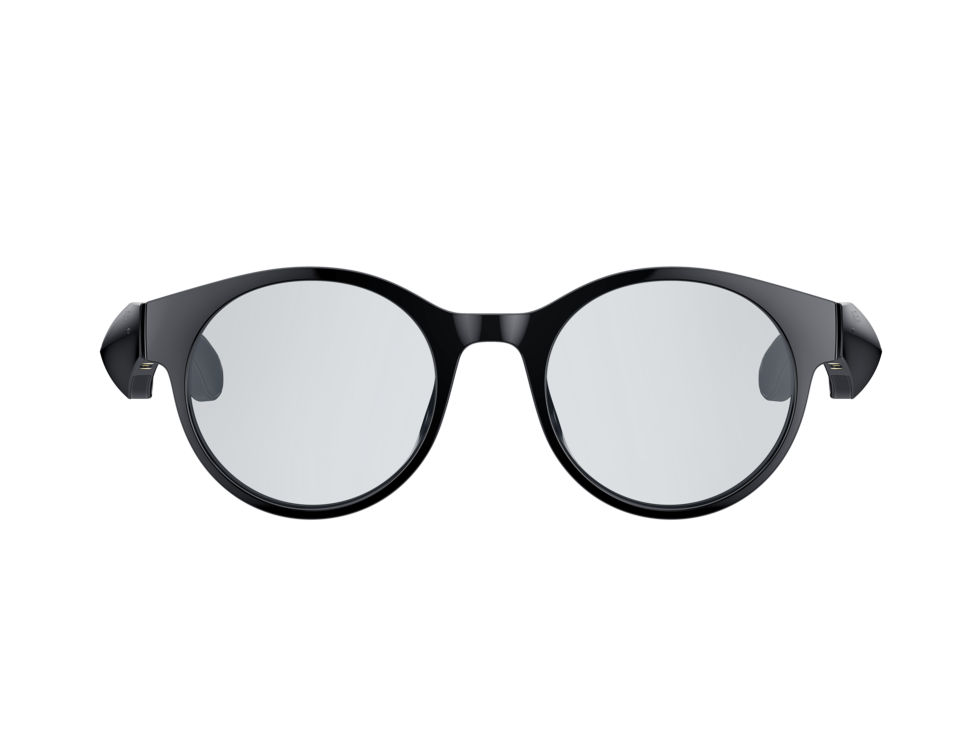
Post a Comment